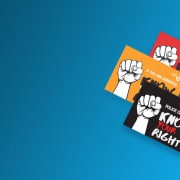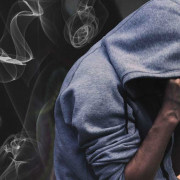|
Getting your Trinity Audio player ready...
|
By Thato Mahlangu
Part one of our mini-series on the UN’s World Drug Report 2020 looked at some of the report’s key findings. In the second and final part, we cover the situation in South Africa at the moment. The situation is serious, and it’s not getting better.
According to anti-crime organisation Enact, the local heroin market is expanding, facilitated by gangs, organised crime and incompetent or corrupt police. The organisation says that some police officers are accused by Western Cape community members of accepting bribes from gang members.
“The police have been accused of having interdependent relationships with gangs, drug dealers, and users. In Cape Town, dealers in gang-controlled neighbourhoods say patrol vans visit their selling points for small cash bribes. Interviewees in Tshwane spoke of corrupt junior police confiscating drugs and selling them to other dealers,” says Enact.
Corruption in Uniform, our report published in June 2019, paints a similar picture to that of Enact. The report reveals instances of corruption committed within the South African Police Service (Saps). Accusations of bribery and sextortion have been levelled against some of these men and women who swore to uphold the Constitution but instead have been accused of violating its fundamental principles.
Mzwandile Banjathwa, project manager in Corruption Watch’s stakeholder relations unit, says since the organisation’s launch in 2012, more than 2 000 reports relating to police corruption have been reported.
“We have been made aware of police officers who would request bribes from members of the public. Some officers are accused of smuggling narcotics while some are suspected of protecting drug dealers in different parts of the country,” Banjathwa explains.
Some of the police and drug related corruption reports received by the organisation have been referred to Saps’ national anti-crime internal units, as well as law enforcement agencies like the Independent Police Investigative Directorate (Ipid).
But because of the frequent change in Ipid’s leadership, the relationship has been somewhat delicate, making it difficult for the organisation to refer more reports to Ipid which would help in securing more prosecutions which would lead to convictions, says Banjathwa.
In Gauteng alone, police bribery reports stand at 47%.
Bigger problems and crimes, lesser solutions and punishments
The Open Society Foundations agrees that weak policy reforms are to blame for the thriving industry. This is seen especially in marginalised communities like the Cape Flats, an area in Cape Town which has reported high levels of crime and violence over the years. The socio-economic problems in these communities are partly as a result of drug use.
The organisation says international drug policies are failing billions of people (often families who have to spend large amounts of money on rehabilitating their relatives who use drugs) as there is not enough harsh punishment for all actors involved, including users.
“South Africa’s heroin crisis is extremely serious and is taking a heavy toll on communities,” says Simone Haysom, a senior analyst at the Global Initiative against Transnational Organised Crime, which is part of Enact.
Saps has failed to detect the thriving industry in the country even though there are over 100 000 users, says Enact. “It’s estimated annual turnover may be worth billions of rands. The problem is made worse by poor drug policy and neglect of marginalised communities.”
Potential drug crisis is said to be looming in Africa
Enact’s programme head at the Institute for Security Studies, Eric Pelser, says there is a potential crisis looming in sub-Saharan Africa as 20-million hard drug users are expected to originate in the region by 2024.
Pelser cautions that insufficient policy attention is being paid to the looming crisis, which would enable the industry to flourish. “The problem is exacerbated by poor policing and the absence of crime intelligence.”
The UN World Drug Report confirms this claim. Furthermore, according to Enact, South Africa’s poor drug policy has severe social, economic, and political implications.
“Drug users are criminalised and have limited access to services, so become socially marginalised. Many end up living on the street, where they face assault and extortion by police.”
Research by Enact warns of the threat to the development of the country posed by the consumption of illegal drugs like marijuana, ecstasy, cocaine, LSD, or crystal meth (known as tik in South Africa). This may place a burden on health care as the number of people who would seek medical assistance rises.
“Sub-Saharan Africa will see the world’s biggest surge in illicit drug users in the next 30 years, with its share of global drug consumption projected to double. But securitised responses have had unintended consequences and have done a disproportionate amount of harm for limited results achieved,” according to Enact.








